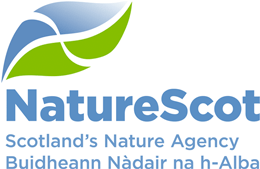23 October, 2017
Trapping of Beauly beavers temporarily suspended
Work to relocate a group of beavers living on a river in the Beauly area, after being released illegally, has been suspended until early next year, Scottish Natural Heritage (SNH) confirmed today.
Three beavers have already been captured in the area. One of the animals, a healthy kit, is now being cared for at the specialist Scottish SPCA wildlife centre in Fife, where it will join Timber, a beaver kit rescued after being caught by a dog on Tayside.
All being well, there are plans to release the two young beavers at the site of Scotland’s official reintroduction project at Knapdale Forest in Argyll.
Colin Seddon, the Scottish SPCA National Wildlife Rescue Centre manager, said: “We are pleased to be able to accept this healthy kit to our facility. As beavers are social animals we hope the two will be company for each other and that when sufficiently mature they can be released to help in the reintroduction work at Knapdale.”
Two adult beavers died after screening by vets. Vets have established that the first animal was suffering from an eye deformity and a suspected infection. Work is underway to establish the cause of death of both animals.
Official beaver reintroductions are managed carefully to ensure populations are healthy, sustainable and large enough to minimise the risk of inbreeding.
Denise Reed of SNH said: “It is still our intention to trap and re-locate the remaining beavers because their presence is the result of an unlicensed release. We have stopped trapping for the time being, and we will begin trapping efforts again next year when there will be a plentiful food supply for beavers relocated to Knapdale.”
The Scottish Government announced last November that Ministers were minded to allow beavers to remain in Tayside and Argyll and expand their range naturally. However, it will remain a criminal offence to release beavers without a licence.
The latest information suggests only a small number of beavers remain in the wild in the Beauly system, including an adult beaver and kit.
Trapping and screening techniques adopted by SNH have been used safely in many previous cases, and were undertaken by highly qualified professionals.
Experts in Scotland have previously been involved in more than 70 beaver screening events with only one fatality, a sub-adult captured during the Tayside Beaver Study.
As part of any licensed reintroduction beavers are normally health-checked and screened for diseases, including a tapeworm (Echinococcus multilocularis) not currently present in the UK and a public health concern. The screening also makes sure the beavers are not the North American beaver species, which is already posing conservation problems in other parts of Europe.
Contact information
- Name
- SNH Media
- snhmedia@snh.gov.uk
Notes to editors
Beavers were hunted to extinction in Scotland around 400 years ago. In May 2008 the Scottish Government gave permission to the Royal Zoological Society of Scotland and the Scottish Wildlife Trust for a five-year, scientifically-monitored, trial reintroduction of Eurasian beavers to Knapdale Forest in mid-Argyll. SNH coordinated the independent scientific monitoring of the trial.
Beavers have been in Tayside since at least 2006, and are thought to originate either from escapes or illegal releases from private collections. In March 2012, Scotland’s Minister for Environment, Stewart Stevenson, opted to allow the Tayside beavers to remain in the wild for the duration of the official trial reintroduction of beavers in Knapdale, Argyll.
A family of beavers on the Beauly was first reported to SNH in the summer of 2017 although single animals have been reported in the past. These have been promptly removed.
In November 2016, it was, announced that Scottish Ministers were minded that both the Tayside and Knapdale beaver populations could remain in Scotland, pending the satisfactory completion of a Strategic Environmental Assessment and a Habitats Regulations Assessment (this work in on-going). The SNH ‘Beavers in Scotland’ report, and other background beaver information, is available via www.snh.gov.uk/beavers-in-scotland
NatureScot is Scotland's nature agency. We work to enhance our natural environment in Scotland and inspire everyone to care more about it. Our priority is a nature-rich future for Scotland and an effective response to the climate emergency. For more information, visit our website at www.nature.scot or follow us on X at https://x.com/NatureScot
’S e NatureScot buidheann nàdair na h-Alba. Bidh sinn a’ neartachadh àrainneachd na h-Alba agus a’ brosnachadh dhaoine gu barrachd suim a chur ann an nàdar. Tha e mar phrìomhachas againn gum bi nàdar na h-Alba beairteach agus gun dèilig sinn gu h-èifeachdach le èiginn na gnàth-shìde. Tha an tuilleadh fiosrachaidh aig www.nature.scot no air X aig https://x.com/NatureScot
